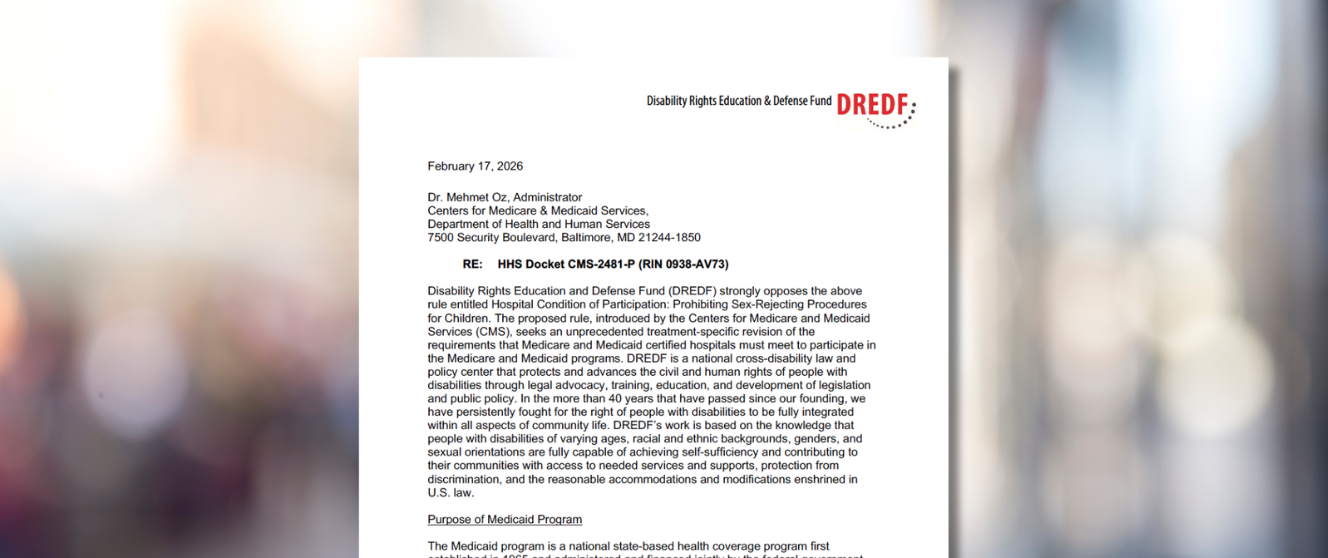
For Immediate Release — August 6, 1998
Linda D. Kilb, Esq.
Disability Rights Education and Defense Fund, Inc. (DREDF)
(510) 644-2555
William F. Alderman, Esq.
Beatrice Burgess Orrick, Herrington & Sutcliffe LLP
(415) 773-5944
Safety a Major Problem for Passengers Who Use Wheelchairs
Class Action Lawsuit Filed Under ADA
Berkeley, California — A class-action lawsuit will be filed on August 6, 1998 in federal court in San Francisco against two companies that provide passenger bus services in California. The bus companies involved are Serendipity Land Yachts of Santa Clara, California, which serves northern California; and Coach USA, a Houston, Texas-based company that operates Antelope Valley Buses serving southern California passengers. The suit will be filed by the Berkeley-based Disability Rights Education and Defense Fund (DREDF), and the San Francisco law firm of Orrick, Herrington and Sutcliffe LLP, on behalf of named plaintiff Betty L. Ingram and all similarly situated class members, alleging a pattern and practice of disability discrimination against passengers who use wheelchairs.
The Complaint alleges that Serendipity and Coach USA have violated both federal and California disability civil rights laws, including the Americans with Disabilities Act of 1990 (the ADA), by failing to ensure the safety of passengers who use wheelchair devices, and by failing to properly train their personnel to provide respectful and courteous service to passengers with disabilities.
The experience of Mrs. Ingram, who is a resident of northern California, illustrates the systemic problems faced by bus passengers who use wheelchair devices. Mrs. Ingram uses a three-wheeled scooter due to a mobility impairment. In August 1997 she traveled from her home in the San Francisco Bay Area to visit her elderly mother in Glendale, California. Her trip, which was ticketed through the Amtrak Thruway Bus reservations system, involved travel on both Serendipity and Antelope Valley buses. Despite the fact that Mrs. Ingram had provided notice of her disability to Amtrak Thruway Bus reservations agents prior to her travel, she was poorly treated and experienced safety problems throughout her journey.
On August 8, 1997, after boarding a Serendipity bus in Fremont using an operative wheelchair lift, Mrs. Ingram found that the bus lacked wheelchair securement devices (tie downs and belts). As a result, Mrs. Ingram was physically injured when her chair was thrown onto its side as the bus veered to the right on an off-ramp to Interstate-680 in Pleasanton.
Mrs. Ingram also experienced access problems on both Serendipity and Antelope Valley buses during her trip home from southern California on August 11, 1997. She was treated in a rude and impatient manner by drivers who had not been adequately trained regarding the safe and effective operation of the access features of the buses, such as wheelchair lifts. These buses again lacked wheelchair securement devices.
Says Mrs. Ingram:
I thought I was going to have a nice, relaxed trip down to see my mother. Instead, the trip was a disaster. Not only was I physically hurt, I was angry and humiliated at being treated like a sub-standard human being. I should be able travel safely anywhere, just like anyone else does. I used to love traveling, but now just the idea of it is frightening.
Says DREDF attorney Linda D. Kilb:
Our lawsuit is focused on ensuring that bus companies provide safe and courteous service to passengers who use wheelchairs. We want assurance that the operational practices of these bus companies, including their training of employees, are designed and implemented so as to protect the rights of people with disabilities.
DREDF is a Berkeley-based, non-profit law and policy center nationally recognized for its expertise in the interpretation of disability rights laws. Staffed and Board-run by persons with disabilities and parents of children with disabilities, DREDF is involved in education, policy, legislative and litigation efforts dedicated to protecting and advancing the civil rights of persons with disabilities.

